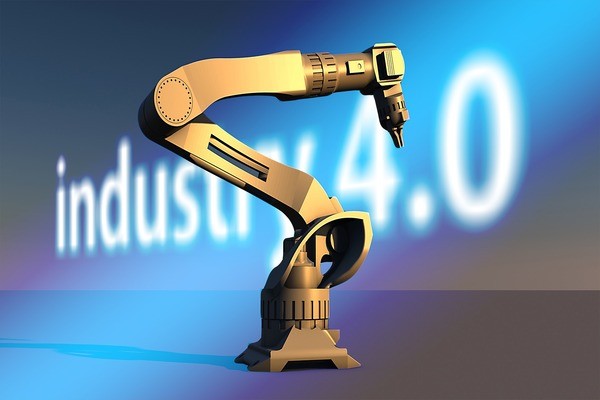
Technology is always advancing and in a lot of ways, it makes life easier for us. But it can also put us out of a job.
Big business is extremely focused on increasing production, cutting costs, and improving safety (largely to avoid lawsuits, but still). Robots don’t need a salary or even a break, and are much less prone to mistakes.
But robots also don’t need to support their families, so it can feel like a really raw deal to be laid off. Just be sure to put blame in the right place – it’s not immigrants who are stealing your jobs, it’s artificial intelligence.
Following are 10 industries that are likely to be giving away a lot of jobs to robots or computers; if you are just starting out or looking for a career change, it might be best to scratch these off your list, or else get into programming the machines that will do the jobs.
1. Customer service agents and telemarketers
Chances are, you already deal with an automated system for a lot of your customer service needs. Apple’s Siri, Amazon’s Alexa, and Google’s Home are all automated personal assistants.
We do online banking, and can get lots of account information over the phone as read by a computer. Those “How can we help?” chat messages that pop up when you visit certain websites are also bot-driven, at least until you respond with a specific question.
Typically, we only need to speak to a real person for unusual or complex questions. But so-called chat bots are likely to advance in the next 10 years to a place where they’ll have all the info they need to replace a human conversation.
Even telemarketers may find that computers are better at selling stuff than people.
2. Postal workers

The Bureau of Labor Statistics reports that jobs in the post office are declining faster than many other professions. Machines already do most of the sorting, and with email and online billing available, there is less need to deliver paper mail.
Do you remember when it used to be exciting to go see what was in the mailbox? Now it is mostly advertisements and the few bills that you haven’t set up for paperless billing.
Even though online shopping has pushed many brick and mortar stores out of business, and someone needs to deliver those goods, sellers are increasingly looking to drones to handle that job.
3. Paralegals
Now that all existing case law is archived and easily accessible at the touch of a button, paralegals are less necessary.
They used to spend hours upon hours combing through documents to find applicable legal statutes, but computers are able to analyze millions of documents in seconds.
Newer software can extract relevant information and present helpful ideas for lawyers as well. But paralegals may be out the door only a few steps ahead of the lawyers themselves.
Given the amount of racism and uneven application of the law within our justice system, perhaps it would be better for computers to handle decisions and punishments with a blind eye.
4. Store managers
People who manage corporate stores like Walmart and Target may soon find themselves out of a job as those companies restructure. With greater numbers of self-service and self-checkout options, there will be fewer staff members to manage, for one.
But even those brick and mortar stores that survive the online shopping revolution are still putting significant energy toward competing in the online arena.
They will be looking, as always, toward reducing the cost of running their stores, and managers get paid more than most other employees.
Big stores are likely to cull a lot of their assistant store managers for that reason. Eventually, as physical stores become fewer and more automated, there may be little to no staff needed on hand to run them at all.
5. Drivers

For people who drive for a living, their car is their office. Self-driving cars are still in their infancy, but they are out there logging miles already.
Uber and Lyft are already excited about how much money they can save without drivers to pay. Self-driving cars also have the potential to be much safer than human-piloted ones.
After all, 90% of traffic accidents that occur presently are caused by human error. Computers can take in way more information than humans and they don’t get distracted, drunk, or tired.
The one area where computers lag is in predicting human behavior, so a self-driven car will struggle to guess when a human might step out in front of it.
With a few more years of testing, and a growing human understanding of what to expect from these vehicles, we may find that traffic fatalities become a rare event. But it also means that people who make their living by driving will need to find new jobs.
6. Accountants
It can be uncomfortable to have a stranger look through all of your most personal financial information, not to mention costly. Lots of folks already take advantage of online tools for filing their taxes and establishing investment accounts.
The better these programs get at making the information understandable for regular people, and in providing a big picture assessment of various financial choices, the less often anyone will call on their local accountant.
Bookkeepers may also be on the way out with the rise of financial management software that anyone can operate.
7. Surgeons

Surgical medicine requires vast knowledge and precision, both of which computers excel at. Surgical robots are already assisting surgeries on a daily basis and often outperform human surgeons at tasks like stitching up soft tissue.
Tiny robots have also been used to improve vision and handle knee replacement; more than 3 million procedures world-wide have been done by robots.
While human surgeons will always be necessary to deploy the robots and to react to situations that are unpredictable, many fewer of them will be required for this purpose as medical technology advances.
8. Financial Analysts
Many financial analysts make millions by examining the numbers and then going with their guts in terms of recommendations that will make money for their customers.
Turns out, computers have no natural instincts but do a better job at analyzing mountains of historical information and making educated guesses about what the market will do next. Online tools make it easier than ever for regular people to get into investments.
And we’ve all heard enough stories about people whose financial advisers stole all their money to perhaps feel more trusting that a computer has no ulterior motive.
It’s not just financial analysts who may struggle to hold their jobs – it has been predicted that up to 30% of all banking sector jobs will be taken over by artificial intelligence within 10 years.
9. Technical Writers
Much writing relies on evoking emotion as well as relaying information, and computers aren’t great at that just yet.
But artificial intelligence has been producing numbers-based articles, such as quarterly earnings reports, for the Associated Press since 2014.
These days, up to 3,000 reports are generated for the AP each year that are published without any human intervention. Writers whose assignments require “just the facts” may want to start branching out a bit.
10. Travel agents

With the rise of online booking sites, fewer and fewer people bother to ask a travel agent for help.
All of the information is right there at the tips of our fingers and many of us actually enjoy spending lots of time planning that special vacation, challenging ourselves to find the best deal, and getting motivated through pictures of accommodations and activities.
However, travel agents who evolve to target luxury and corporate travelers may still find a toehold in the industry. These folks typically have neither the time nor the inclination to arrange travel themselves.
Traditionally thought to affect mainly blue collar workers, automation and artificial intelligence can eliminate the need for many white collar jobs as well. But don’t panic just yet.
Many employers are saying that increased automation simply means they can use their employees differently, not get along without them. Still, there will be undeniable shifts with the rise of intelligent machines, and it couldn’t hurt to diversify your talents a little bit.
The better you can embrace technology and carve out a place for yourself in partnership with it, the better your long term employment prospects will be.
